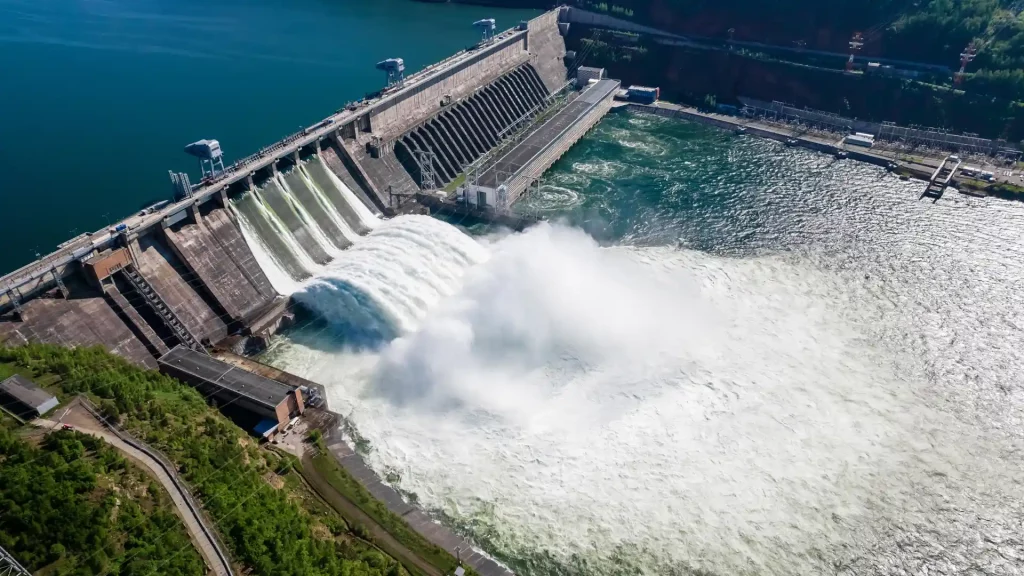The timing of this meeting is symbolic, occurring in the wake of the recent diplomatic churn in the Middle East, as nations are taking steps to realign their diplomatic relations. The UAE’s instrumental role in brokering this deal is particularly important. The UAE became the third Arab nation, following Egypt in 1979 and Jordan in 1994, to normalise diplomatic relations with Israel. This marked the end of a 25-year period without diplomatic ties, highlighting the effect of the Abraham Accords on improving regional collaboration.
The crux of this agreement involves Jordan supplying solar energy generated from a UAE-funded plant to Israel, with Israel, in turn, providing Jordan with much-needed desalinated water.
Israel’s Energy Minister and the CEO of the UAE‘s renewable energy company, Masdar, recently met to advance a water-for-energy deal with Jordan, according to the Israeli Energy Ministry. The meeting’s goal was to progress the projects ahead of an anticipated signing during the upcoming annual UN climate conference COP28 in Dubai this November. It followed a successful ministerial meeting in Abu Dhabi last month, attended by Israel’s Energy Minister, as well as a recent visit by Masdar’s representatives to Israel.
The crux of this agreement involves Jordan supplying solar energy generated from a UAE-funded plant to Israel, with Israel, in turn, providing Jordan with much-needed desalinated water. This synergistic arrangement carries deep implications for the Middle East, addressing Jordan’s acute water scarcity as the second most water-deprived country globally. Simultaneously, it lets Israel further diversify its clean energy portfolio, marking a large stride towards sustainability.
What are these projects exactly?
The two primary projects within this agreement are named Prosperity Green and Prosperity Blue. The start of these initiatives was in June, when Israel‘s Energy Minister, Israel Katz, introduced an ambitious plan. This plan envisioned the construction of a solar plant with a capacity of 600 MW along with energy storage facilities in Jordan. Additionally, it required Israel to export 200 million cubic metres of desalinated water annually to its neighbour.
The deal is expected to be signed during the COP28 climate conference in Dubai, with funding provided by the UAE. It aims to leverage both Jordan’s large solar energy potential and Israel’s advanced desalination technology to meet water and energy needs in the region.
However, this remarkable initiative has not been without its detractors. Some experts in Jordan, alongside activists, have raised concerns. They argue that while the water-for-energy project is a positive step, it does not provide a comprehensive long-term solution to Jordan’s water shortages. The water crisis in Jordan is exacerbated by factors such as a growing population and a massive influx of refugees, including Palestinians, Iraqis, and more than 1.3 million Syrians.
This agreement is a sign of the Middle East’s changing diplomatic scene
The timing of this meeting is symbolic, occurring in the wake of the recent diplomatic churn in the Middle East, as nations are taking steps to realign their diplomatic relations. The UAE’s instrumental role in brokering this deal is particularly important. The UAE became the third Arab nation, following Egypt in 1979 and Jordan in 1994, to normalise diplomatic relations with Israel. This marked the end of a 25-year period without diplomatic ties, highlighting the effect of the Abraham Accords on improving regional collaboration.
The water-for-energy initiative involving Israel, the UAE, and Jordan is thus a big step forward for peace and development in the Middle East. It not only holds the potential to address pressing water and energy challenges but is also a major boost for regional diplomacy and collaboration. As the deal moves closer to its formal signing, it will be examined as a case study of cooperation in a region grappling with geopolitical friction and resource scarcity.
